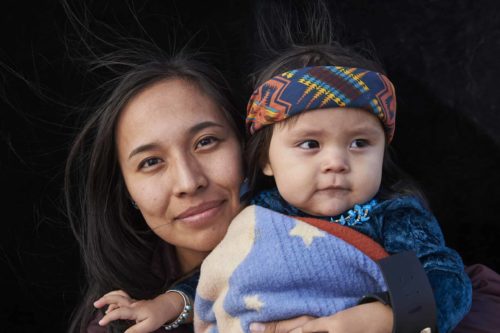
The Build a World of Play Challenge was launched on February 16, 2022, by the LEGO Foundation to address a global early childhood emergency, characterised by a lack of access to quality services and supports during the critical early years of a child’s development – an emergency exacerbated by the COVID-19 pandemic. After being selected a top ten finalist from over 627 proposals representing 86 countries, the JHCIH proposal was one of five ground-breaking projects chosen for full funding by the LEGO Foundation. Applicants were evaluated based on four criteria: whether they were impactful, feasible, community-centered, and sustainable. The LEGO Foundation partnered with Lever for Change, a non-profit affiliate of the John D. and Catherine T. MacArthur Foundation, to manage the Challenge process. Lever for Change connects donors with bold solutions to tackle the world’s biggest problems – including issues like racial inequity, gender inequality, lack of access to economic opportunity, and climate change.
Over 25 years in the making, now is an opportune time for the JHCIH Family Spirit program to be shared with other Indigenous communities who experienced similar historical traumas, such as children’s forced attendance at government boarding schools, colonization, high rates of foster care, marginalization and discrimination – all of which eroded strong family networks, cultures, and practices. To take this work around the globe, our Center is partnering with three Indigenous-led organizations including: the First Nations Health Authority in Canada; Te Rōpū Rangahau Hauora a Eru Pōmare (The Eru Pōmare Māori Health) at University of Otago in New Zealand; and the Batchelor Institute for Indigenous Tertiary Education in Australia. Together we seek bold solutions to reclaim strong families and strong autonomous Indigenous communities.
We are grateful to The LEGO Foundation and all of our supporters and partners. This work would not be possible without your support and advocacy for equitable futures for Indigenous peoples worldwide.
From our partners in New Zealand, Canada and Australia:

“Te Rōpū Rangahau Hauora a Eru Pōmare [The Eru Pōmare Māori Health Research Centre] at the University of Otago is privileged to work with our Indigenous partners to support the moemoeā [dreams] and aspirations for wellbeing of our tamariki [children], whānau [extended families] and their communities,” said Dr. Paula Thérèse Toko, our Māori project lead.

“The First Nations Health Authority is very excited to be a part of this partnership to support our First Nations families, communities, and nations,” said Sonia Isaac-Mann, our Canada-based Indigenous lead partner. “Our peoples have been negatively impacted for generations and this positive spark of hope is an important step to build strengths and connections that will support healthy futures.”

“The Batchelor Institute of Indigenous Tertiary Education is thrilled to be part of this partnership. The first six years of children’s lives lay the foundations for their future, and we are privileged to be part of a group that can contribute so much to a positive start in life for First Nations children globally and locally,” said Indigenous Australian lead Kathryn Gilbey. “This project allows us to work with our elders and children in meaningful and proper ways and will plant the seeds of strength in culture that will flourish for generations to come.”
From the LEGO Foundation:
The awards announced today will help in furthering specific bold projects which promote the well-being of children, their caregivers, and their communities, using culturally relevant and sustainable approaches. The awards reaffirm the LEGO Foundation’s commitment in the LEGO® brand’s 90th year to ensure children globally are given opportunities to realize their full potential by learning through play.
Thomas Kirk Kristiansen, Chairman of the LEGO Foundation Board of Directors, said: “As part of the LEGO brand’s 90th anniversary, the LEGO Foundation made a commitment to help build a better world for young children to thrive. The Build a World of Play Challenge is designed to do just that, by funding innovative projects that make a real difference for global childhood development and give young children a better start in life. Congratulations to all the recipients, who have all demonstrated game-changing solutions. We look forward to working alongside them as long-term partners, to invest in children’s futures.”
He added, “The LEGO Foundation’s announcement of this group of recipients signals a long-term investment in early childhood development that will pay dividends for decades to come. These outstanding projects are all committed to build inclusivity. They will work to reach and engage with some of the most marginalized children and communities around the world, creating conditions for all children to learn, play, and thrive during the most critical years of their lives.”
Full Press release from the Lego Foundation
Press release from Johns Hopkins Bloomberg School of Public Health